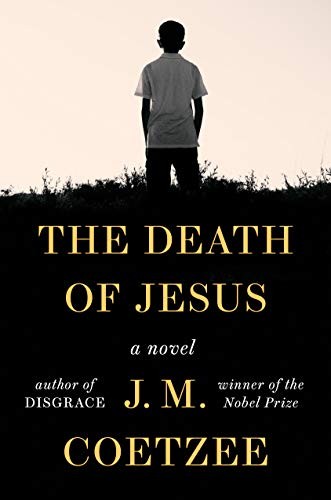Fionnáin reviewed Death of Jesus by J. M. Coetzee
The perfect conclusion
5 stars
JM Coetzee's 'Jesus' trilogy is a series of novels-as-philosophy. They take place in an unfamiliar world, one where it is hard to tell if the people in it are ghosts or something more physical. In the first two books, the scene is set as the central protagonist Simón becomes a father figure for a young boy David, and later finds him a mother figure in Inés. Their travails in a world that seems ethereal, almost without violence except for sudden extreme acts, and led by bureaucracy is magically inventive.
This third book is the best of the trilogy. It is brief and a very quick read, and brings together some of the ideas Coetzee has been working on both in this trilogy and throughout his career. This includes the idea of being an outsider within a system, and how this can affect decisions and behaviours of those around you. …
JM Coetzee's 'Jesus' trilogy is a series of novels-as-philosophy. They take place in an unfamiliar world, one where it is hard to tell if the people in it are ghosts or something more physical. In the first two books, the scene is set as the central protagonist Simón becomes a father figure for a young boy David, and later finds him a mother figure in Inés. Their travails in a world that seems ethereal, almost without violence except for sudden extreme acts, and led by bureaucracy is magically inventive.
This third book is the best of the trilogy. It is brief and a very quick read, and brings together some of the ideas Coetzee has been working on both in this trilogy and throughout his career. This includes the idea of being an outsider within a system, and how this can affect decisions and behaviours of those around you. Each character plays a role, and their role doesn't really change throughout the books – there is no extreme 'growth' or 'progression'.
In this book, David becomes ill after moving voluntarily into an orphanage, and his unique beauty helps to create a cult around him. His role is the 'Jesus' of the story, and his unique way of repositioning the world offers us as readers a chance to also rethink how embedded we are in our own structures and ontologies. In the end it is hard not to relate to the protagonist Simón and his more banal, practical view of the world, and I believe this is what Coetzee intends. Yet he too has unusual quirks and makes decisions that seem to contradict his otherwise pragmatic demeanour. The final words (and other references throughout) pay homage to Don Quixote, a more than fitting link in the maybe-imaginary world that Coetzee has created.

